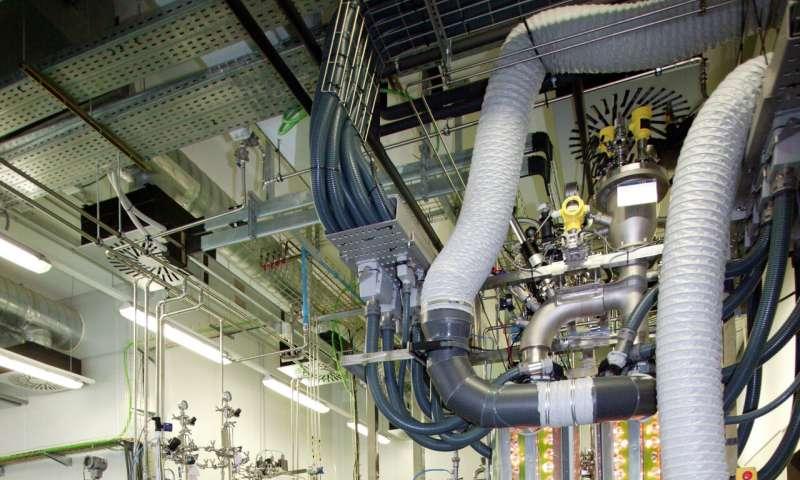A decade-long quest to build an ecosystem in a room



Yesterday the MELiSSA pilot plant at the University of Barcelona celebrated 10 years spent demonstrating the ideal technologies to recycle waste from space missions into air, water and food.
As astronauts explore farther into our Solar System, there will be a need to reduce the reliance on supplies brought from Earth. ESA is working with partners to create a contained system that will eventually and continuously convert carbon dioxide, urine and organic matter into fresh air, water and food – almost indefinitely. This system is known as MELiSSA.
Short for Micro-Ecological Life Support System Alternative, MELiSSA is divided into a number of different modules. Each module tackles one aspect of converting unwanted molecules into those humans need to survive.

On Earth, for example, trees, algae and plants all convert carbon dioxide from our exhaled breath into the oxygen we need to breathe. Melissa takes inspiration from these kinds of natural processes, but also investigates chemical processes , mechanical filters and bio-reactors full of bacteria or microalgae to develop systems needed to deliver a full meal, fresh drinking water and clean air in space .
At the pilot plant in Barcelona, Spain, modules are built and tested to validate each step of the self-contained loop. Once one element works as needed it can be combined into the next step, passing molecules through tubes to the next station as a liquid, a solid, or gas.
More
Tags
Who is online
33 visitors

Awesome! Self-contained, regenerative life support. The idea may be grounded in the long-term habitation of space, but this technology could also have some major applications here on the home planet, especially in the area of waste treatment. Beyond that, it could someday make uninhabitable regions habitable.
Undersea cities, anyone? Antarctica, maybe? The middle of the Sahara? One of these days people might be living in the equivalent of space colonies right here on Earth.
MELLiSA opens up numerous possibilities for humans. In deep space, mars, moon and of all places perhaps right her on earth...
I thought that was accomplished in 1996 (Bio-Dome).